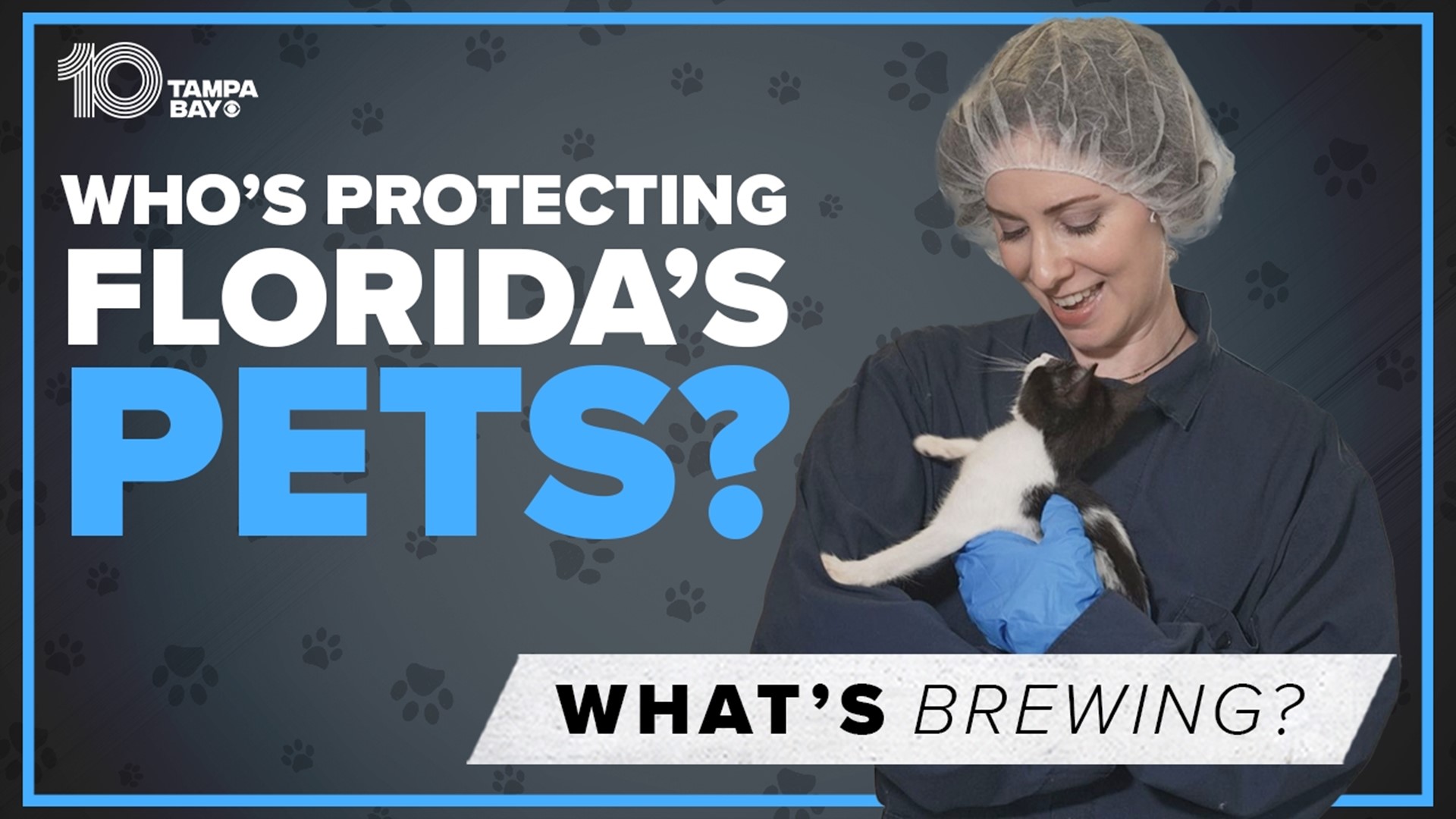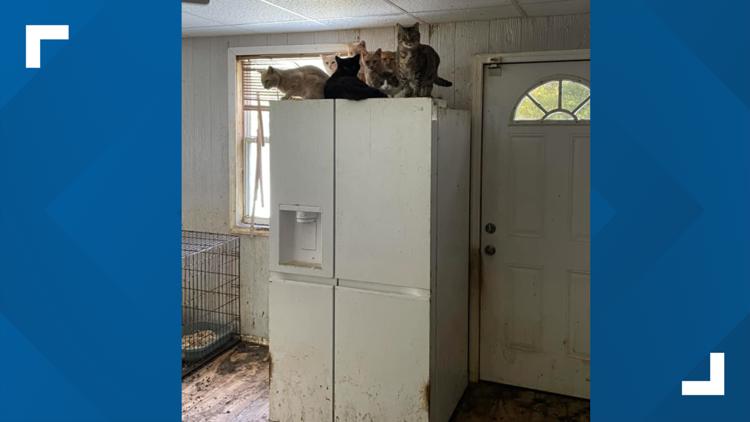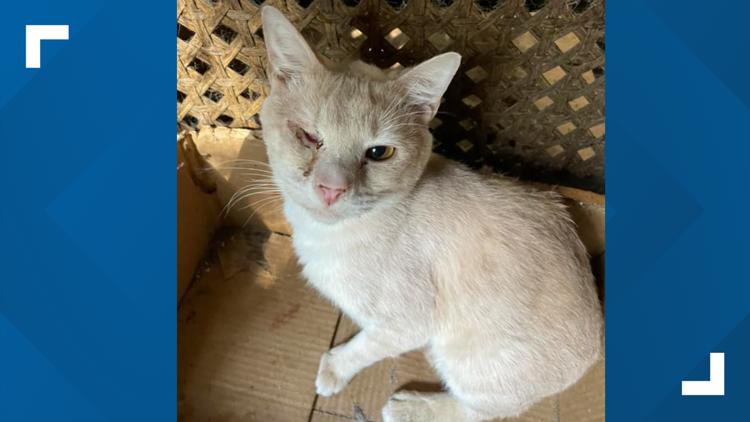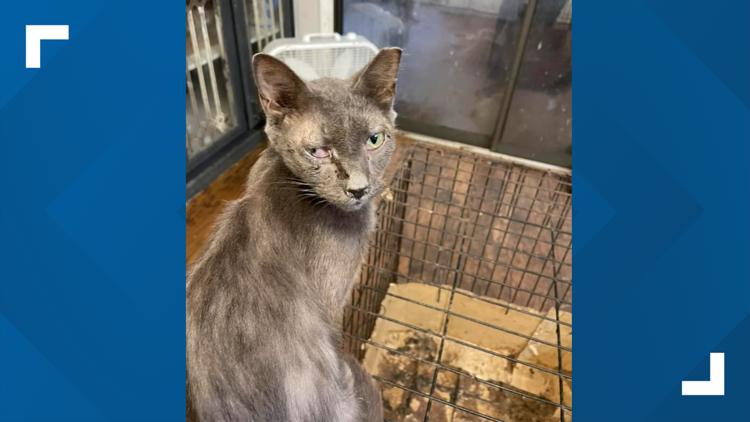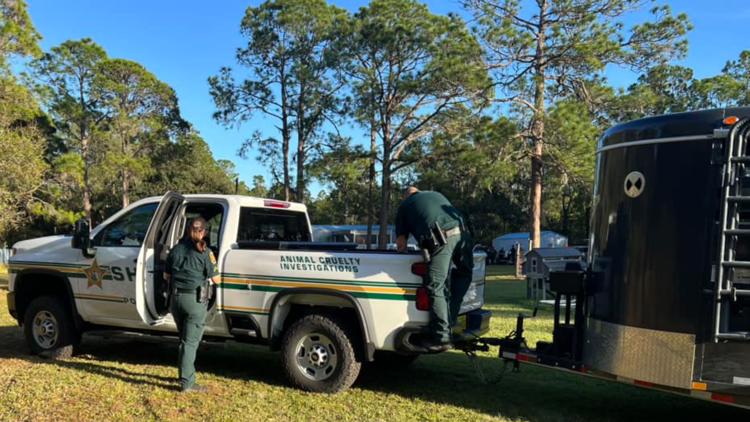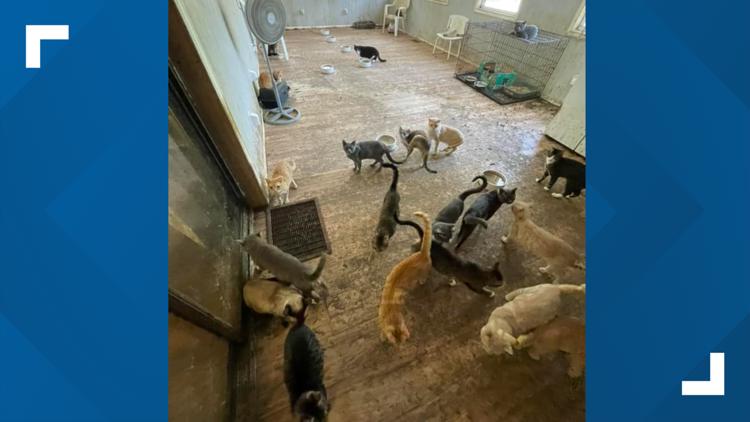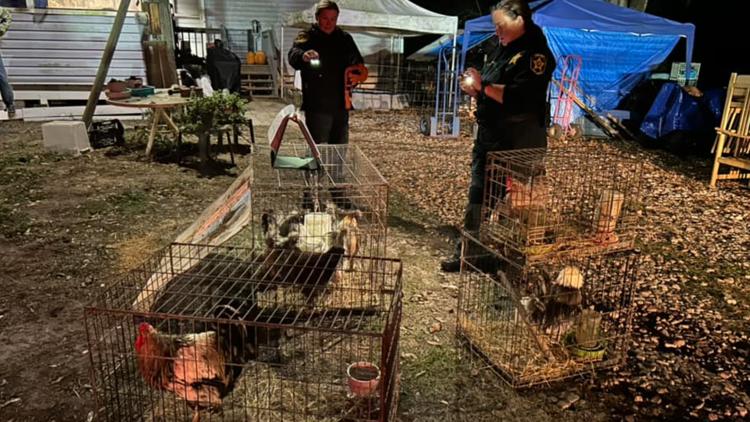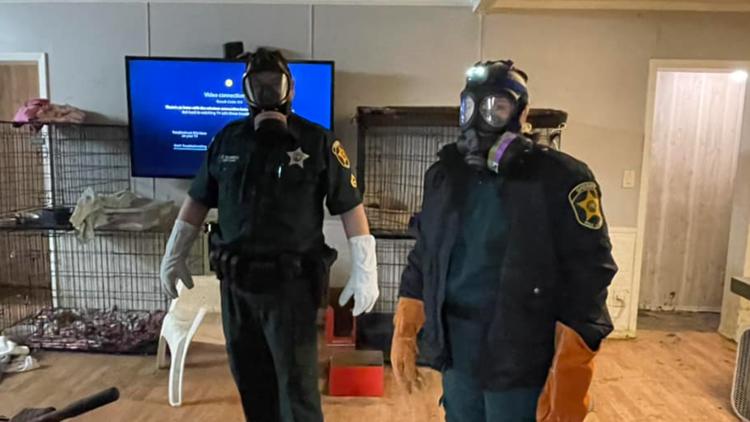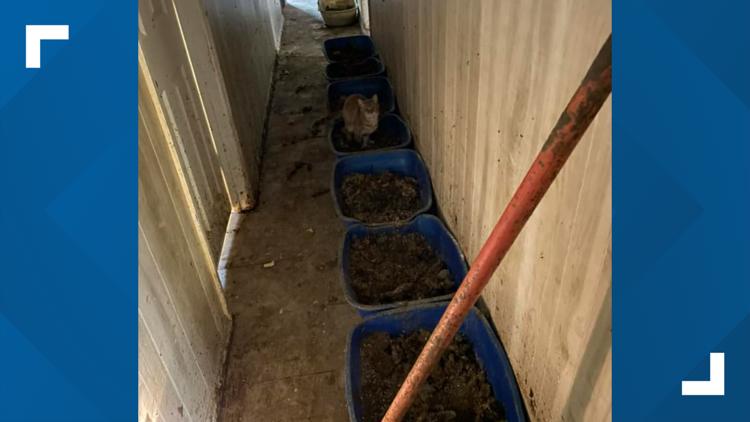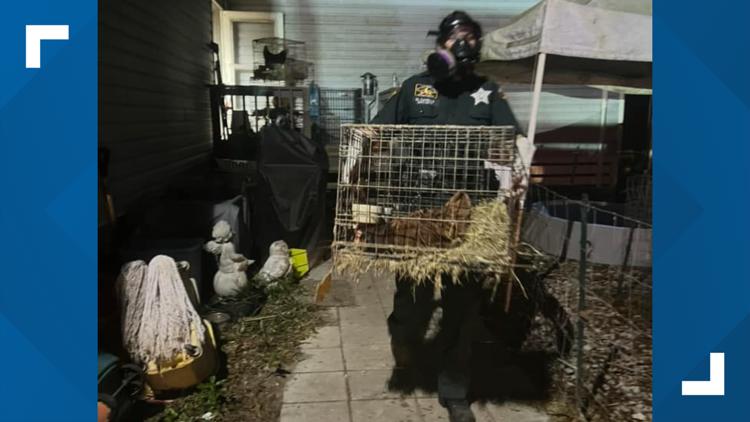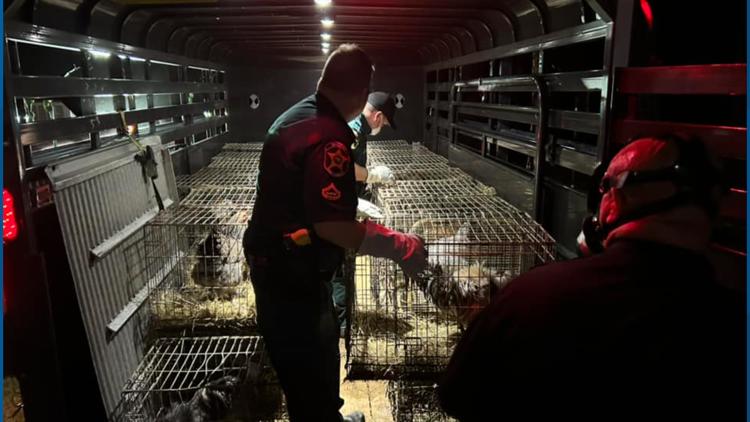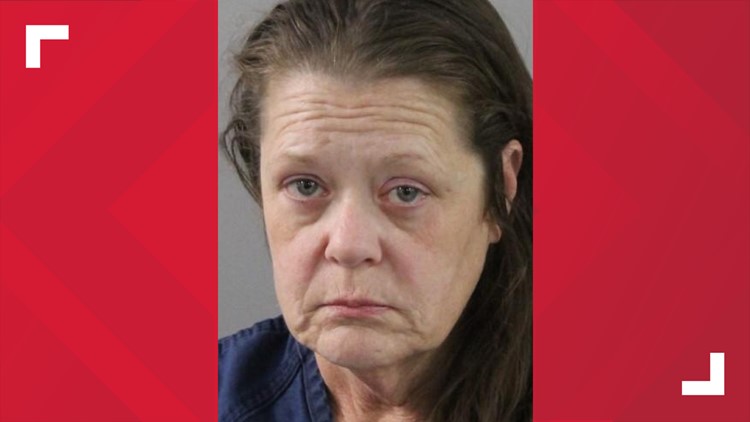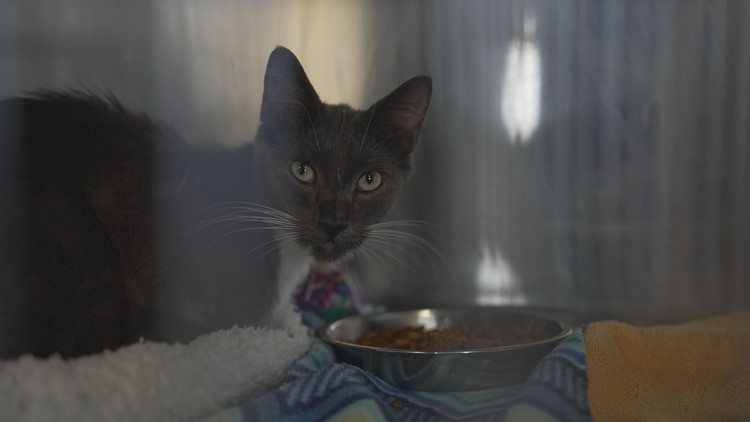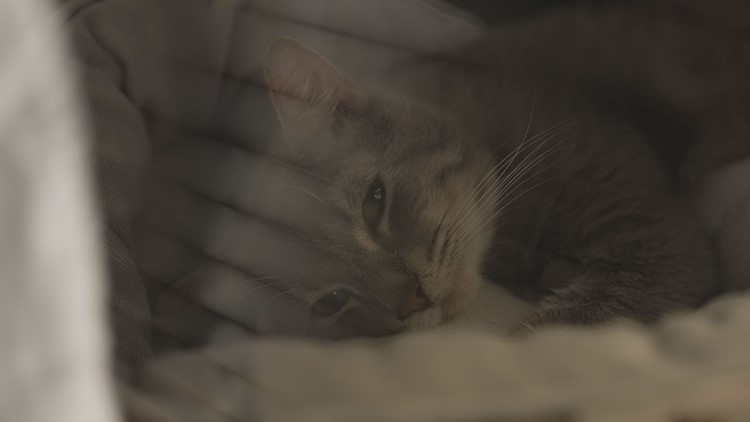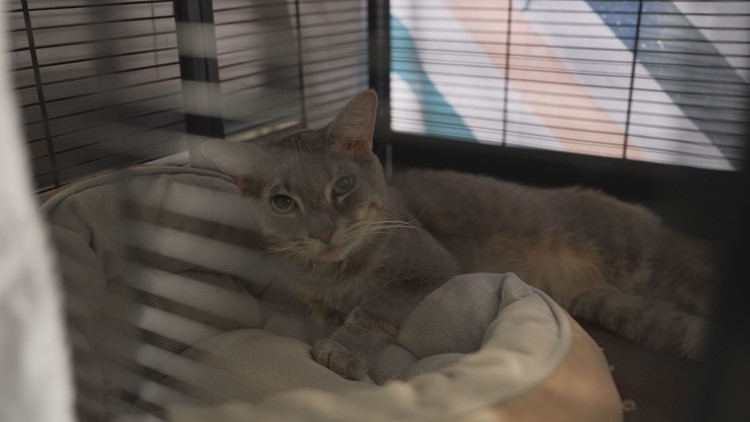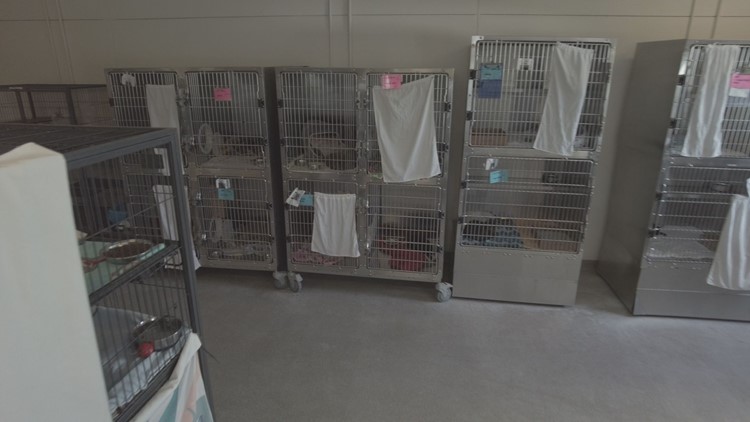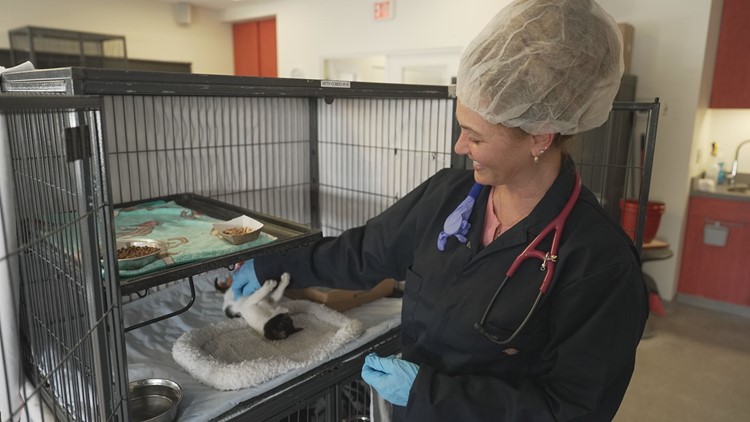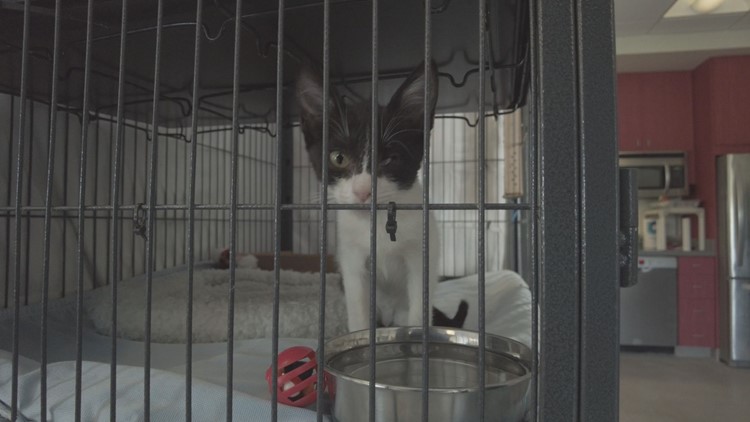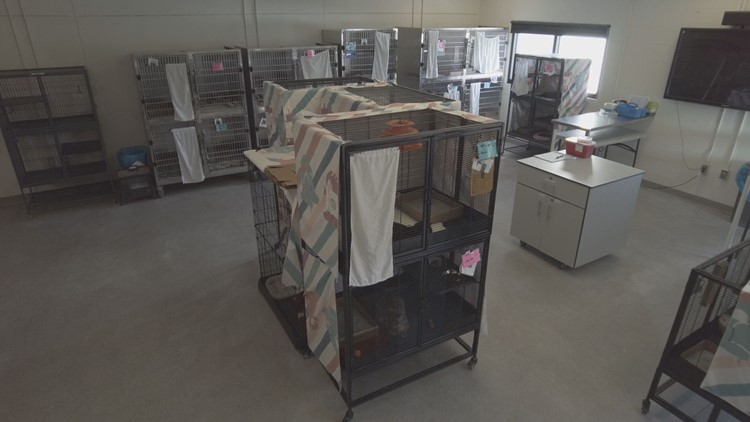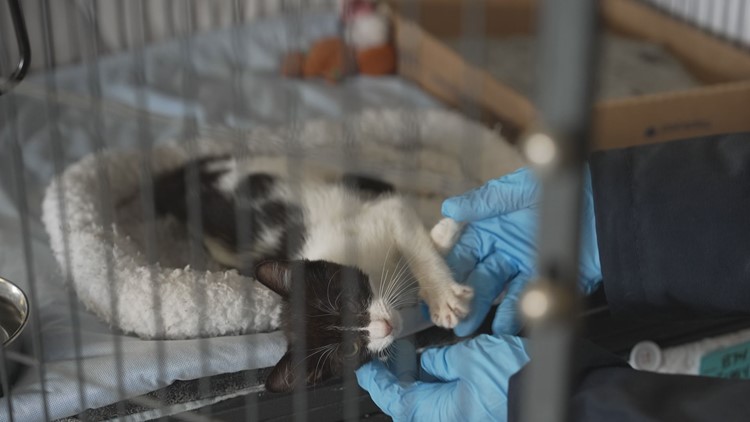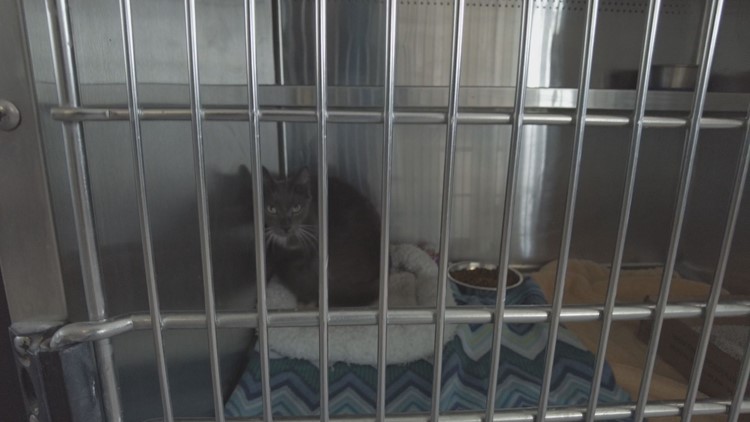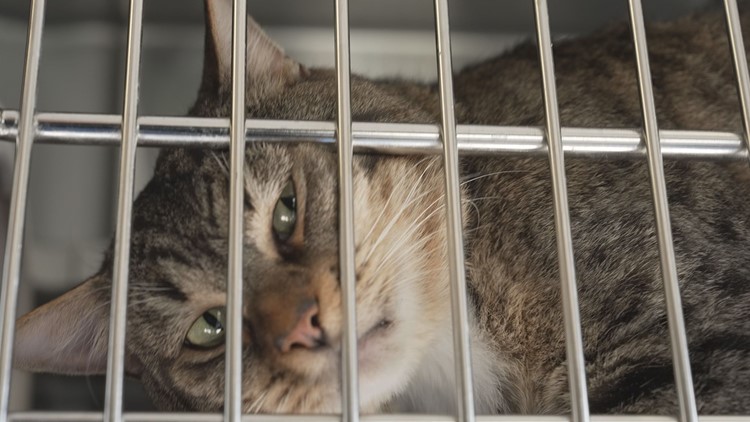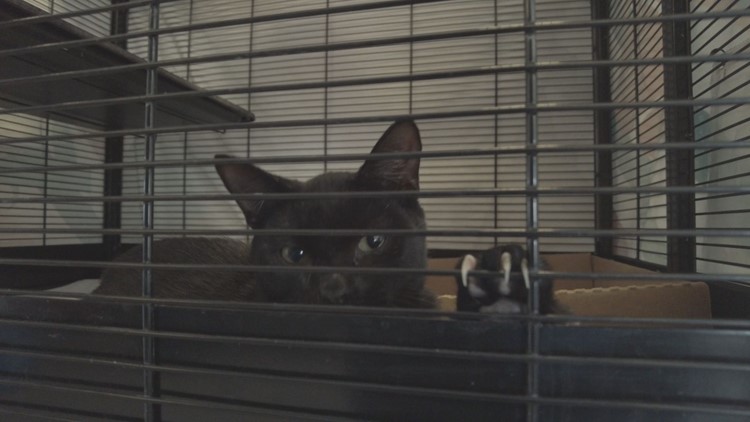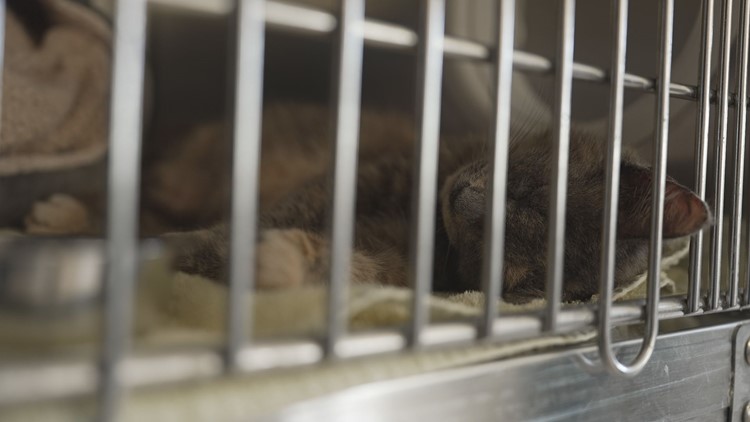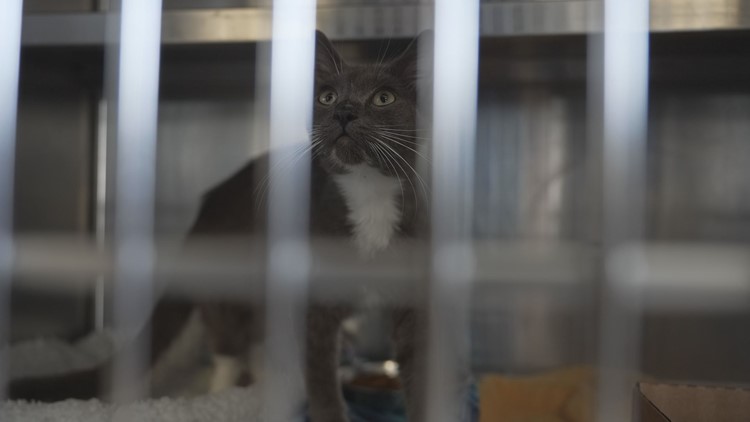POLK COUNTY, Fla. — The staff at Sarasota’s Cat Depot thought they were taking in 34 cats from an animal hoarding bust in Polk County.
One of those cats had other plans. She went into labor during transport to Cat Depot, giving birth to three kittens.
Suddenly, the rescue was taking in 37 cats.
There were a lot more where that came from.

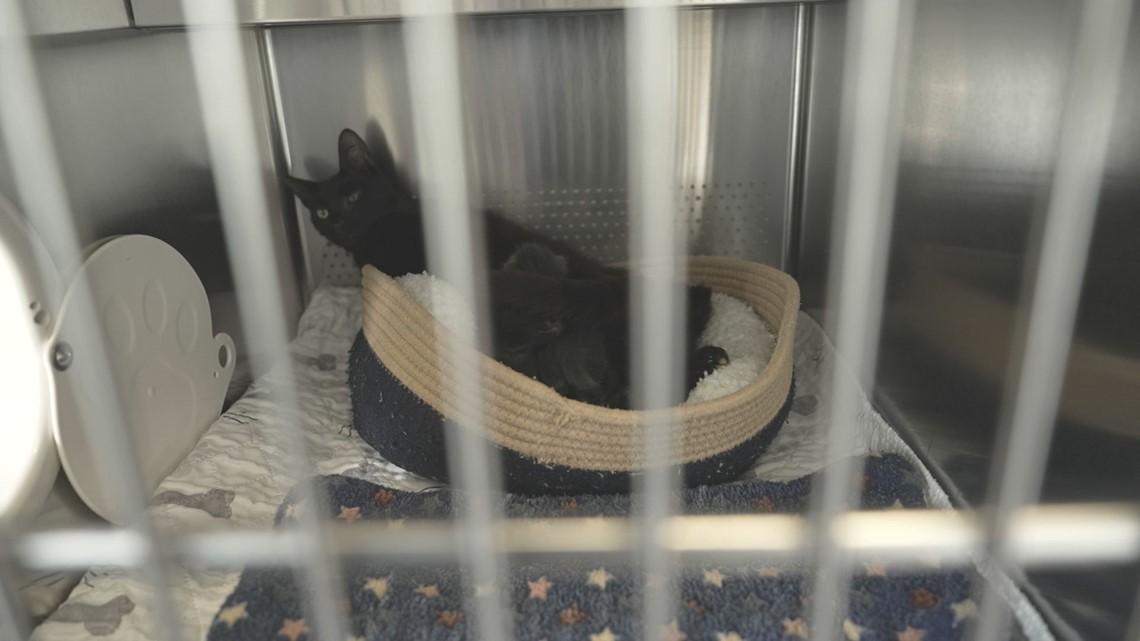
“We’ve done other rescues before, but this rescue. This was a tough one,” Cat Depot’s Medical Director Dr. Michelle Cunningham said. “Just the state that they’re in.”
On Dec. 21, Polk County deputies reported they seized 142 cats, three dogs and 164 birds – including ducks, chickens, geese and a peacock – from Lisa Lacharite’s home in Frostproof.
The elementary school teacher was living there with her 75-year-old mother.
“Understand they're living in this mobile home with the feces all over the place – and the urine up and down the wall,” Polk County Sheriff Grady Judd said.
Polk County Sheriff's Office rescues more than 300 animals in hoarding case
Sheriff’s office reports said the ammonia levels in the air were so high that it wasn’t safe for humans or animals to be living there.
“Every one of these kitties here, they’re on medicine,” Cunningham said.
Many of the cats arrived at Cat Depot with severe upper respiratory infections.
“So, coughing, sneezing, watery eyes. Many of them came to us very underweight and malnutritioned,” Cunningham said. “The majority of them that you see that have a very small eye or maybe two small eyes, it’s due to chronic upper respiratory infections that will infect the eye… The majority of them will have that eye removed.”
Rescued cats recovering at Cat Depot in Sarasota
Lacharite faces 10 counts of felony cruelty to animals and 304 counts of misdemeanor confining an animal without sufficient food or water.
“It's important to point out that Lisa is not an evil person. She is an overwhelmed cat lady,” Judd said.
With Florida’s legislative session in full swing, 10 Investigates looked back at bills introduced in recent years to protect animals from abuse.
We found bill after bill that died in committees before they had the chance to come to a full vote.
The Florida legislative committee graveyard’s most recent dearly departed inhabitants include:
Animal Cruelty bills in 2020 that would have required veterinarians to report suspected animal cruelty: SB 1044 and HB 621.
An Aggravated Animal Cruelty bill in 2022 that would have created new criminal offenses for people who kill or hurt a family member or romantic partner’s pet: HB 121.
A 2023 bill to crack down on cosmetic animal testing: HB 381.
Another 2023 Animal Welfare bill that would have created a statewide animal abuser registry: SB 932.
2023 bills that would have authorized the appointment of courtroom animal advocates – volunteer lawyers or law students who could represent the interests of pets: SB 1006 and HB 989.
We asked Animal Rights Foundation of Florida Campaigns Coordinator Nick Atwood why proposed laws to protect animals consistently go nowhere in the Florida Legislature.
“Animal protection bills are often assigned to the House or Senate agriculture committees, even if the bill is about dogs or cats and has nothing to do with agriculture. And unfortunately, the ‘ag’ committees don’t always prioritize animal bills or take them as seriously as we would like them to,” he said.
The legislative wins for animals we did find were part of larger bills that did not go before any agriculture committees.
In 2022, as part of a bill on sexually related offenses, lawmakers increased the penalty for sexually abusing an animal to a third-degree felony.
And in 2021, as part of a Child Welfare bill, lawmakers started requiring child protective investigators and animal control officers to cross-report suspected animal and child abuse.
Atwood told 10 Investigates that ARFF tends to find more success by going directly to Florida voters through ballot initiatives.
You may remember Floridians voted on a ballot initiative in 2018 that banned greyhound racing.
“Certain industry lobbyists will oppose all animal protection bills, not necessarily because they disagree with a specific bill, but more of a slippery slope fear. They think if animal protection laws are strengthened, that somehow, in the future, that will affect the industries they represent,” Atwood said.
Plus, animals don’t vote. Or lobby. Or fundraise. Or run for office.
“They don’t have a direct voice in our democracy,” said State Rep. Lindsay Cross, a Pinellas County Democrat who represents Dist. 60. “Your pet or livestock are not going to be able to go up to Tallahassee and advocate for their own welfare.”

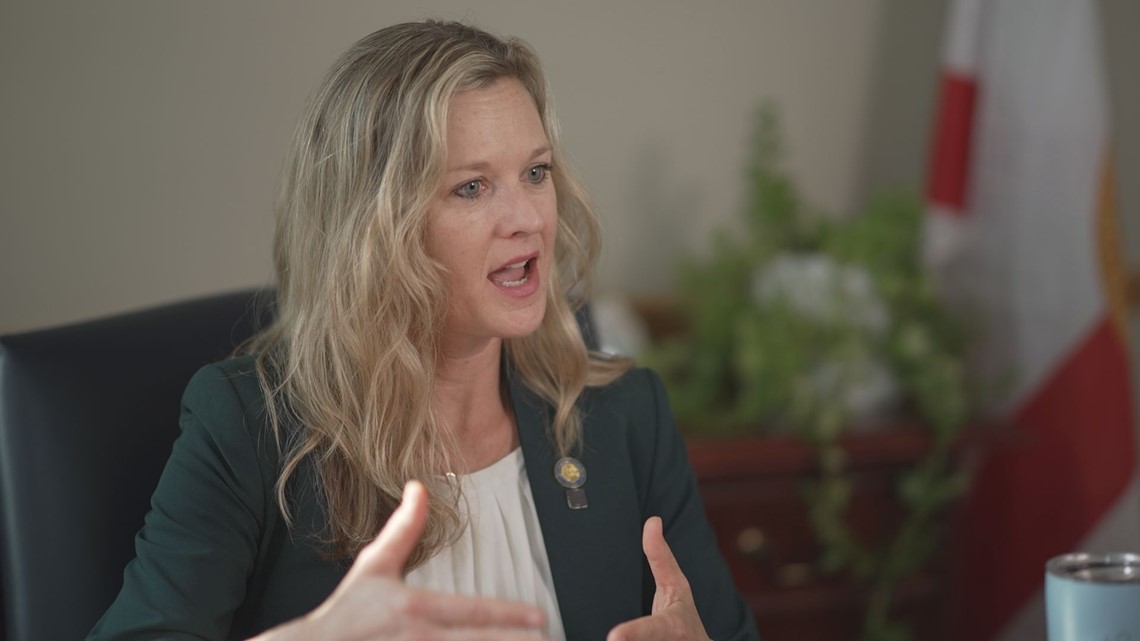
Cross has reintroduced the Appointment of Courtroom Animal Advocates bill this session.
“If you’re a prosecutor, you probably have dozens, maybe more, cases that you’re juggling. If you now have to find veterinary records for 50 animals, that’s a lot of work,” Cross said. “If you can then have someone to come in and do some of that fact-finding, get some of those records, provide some recommendations, it’s just providing extra information for the courts.”
While lawmakers mull that over in Tallahassee, the Frostproof cats recovering at Cat Depot are starting a healthier and happier chapter of their lives.
“All of their prognoses are very good. I feel that they’ll all be very adoptable cats and they’ll make very wonderful pets,” Cunningham said.
Some of those cats have already been adopted from Cat Depot. As more of them become available for adoption, they will be posted on the organization’s website. After you complete an adoption application at the top of that webpage, Cat Depot’s adoption team will reach out to you to schedule an appointment.
Polk County Sheriff’s Office Director of Communications Scott Wilder said all the birds were either adopted or auctioned off within days of being seized from Lacharite’s home.
Wilder also said there are nearly 300 adoptable cats right now at Polk County Animal Control. They sponsor free adoptions every Saturday.

